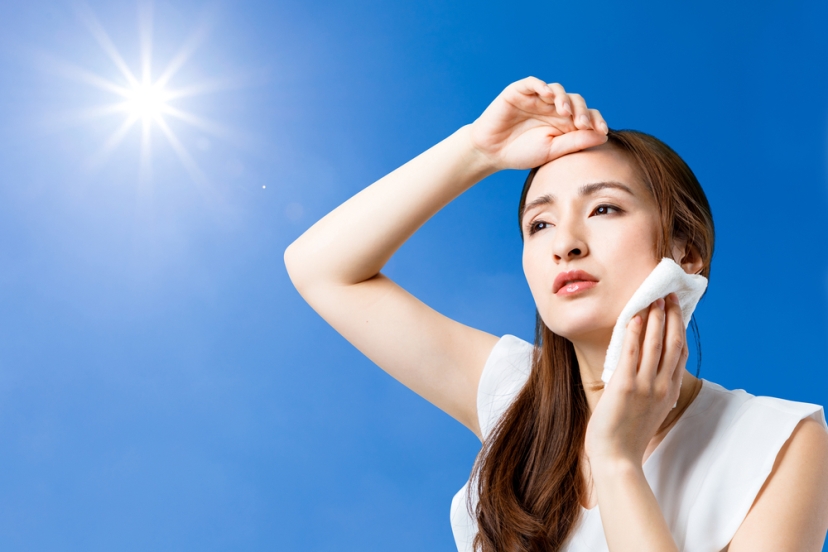Take care of yourself to keep away from heatstroke whenever living in a hot country
In April or during summer, many provinces in Thailand experience temperatures rising to over 40 degrees Celsius, to the point that we are ranked as one of the top 15 hottest places on earth. Extreme heat creates risk for heatstroke, a deadly disease. In 2018 alone, 18 people died from heatstroke, and deaths from this condition is expected to continually increase due to the climate getting hotter each year.
What is heatstroke?
Heatstroke is a critical condition in which the body is unable to adjust or regulate its internal temperature. As a result, body temperature gradually increases until causing symptoms such as headache, fainting, delirium, seizures, loss of consciousness, cardiac arrhythmia and shock. If the symptoms are allowed to continue unabated or if the body’s temperature cannot be reduced for over 2 hours, there can be severe consequences on the heart, brain, kidneys and muscles. Late treatment can be fatal!
Heatstroke Signs to Watch Out For
- High body temperature of over 40 degrees Celsius.
- Dry and hot skin with increasing body temperature but no sweating.
- Low blood pressure.
- Racing heart, arrhythmia, high pulse.
- Extreme thirst.
- Dizziness, headache, confusion, fainting.
- Nausea, vomiting and fatigue.
- Possibility of seizures, cramps and loss of consciousness.
Who are vulnerable to heatstroke?
1. Children younger than 5 years and elderly people, due to their bodies being less able to ventilate heat than young adults.
2. People with chronic or underlying diseases such as hypertension, heart disease and diabetes mellitus.
3. People who are overweight or obese.
4. People who do not rest sufficiently.
5. People who work or engage in activities in the sun for extended periods of time such as people who exercise, golfers, farmers and people who engage in outdoor activities.
6. Office workers who have worked in an air conditioned room for extended periods and then suddenly encountering extreme heat of such an extent that their bodies fail to adjust in time.
7. People who consume alcohol, since their bodies will lose more fluids and minerals than non-drinkers in extreme heat.
8. Alcohol causes the heart to pump blood more quickly and more intensely, which leads to hypertension. The heavier work of the heart can cause shock and death.
Provide appropriate care to heatstroke victims before transporting them to the hospital.
1. Quickly take the patient to a shady area with good ventilation and away from sunlight to allow the body’s temperature to drop.
2. Have the patient lie down horizontally with both feet raised in order to increase blood supply to the brain.
3. Loosen the patient’s clothes for faster heat ventilation.
4. Use a towel dipped in cold water or ice to apply to the neck, torso, armpits, groin and forehead and use a fan to help ventilate heat and reduce the body’s temperature as soon as possible.
5. If the patient is still conscious, have the patient drink plenty of plain water and then bring the patient to a hospital as soon as possible.
How to Protect Yourself from Heatstroke
1. Avoid engaging in outdoor activities or activities in very hot areas.
2. Wear light-colored clothing that is loose, not thick, and light with good heat ventilation and sunlight protection.
3. Frequently sip water by at least 6-8 cups per day even when not thirsty in order to replenish the body’s fluids and lower the body’s temperature.
4. Avoid alcoholic beverages, teas, coffee and beverages with high sugar content.
5. Never leave children, elderly people or pets in a parked car outdoors, since heat inside the car will increase rapidly and create a very high risk of heatstroke.
6. Children, elderly people and people with chronic illnesses should not be in very hot areas or left alone without supervision.
7. For people who exercise, we recommend exercising in a well-ventilated area. In addition, exercise in the morning or evening hours when the weather is not very hot is recommended, and ensure to warm up the body beforehand every time.
8. Wear sunglasses and wide-brimmed hats.
9. If a person with a chronic illness experiences abnormal symptoms or the aforementioned indicator symptoms, seek medical attention as soon as possible.
You may find our specialist here at Neurological Center, Phyathai 2 Hospital
Phyathai 2 Hospital
International Correspondence Center
Tel: +66-2617-2444 ext. 2020 or 2047 E mail: onestop@phyathai.com
 @pt2_inter
@pt2_inter
 Phyathai 2 Cambodia
Phyathai 2 Cambodia
 PT2Chinese
PT2Chinese
 phyathai2inter
phyathai2inter
